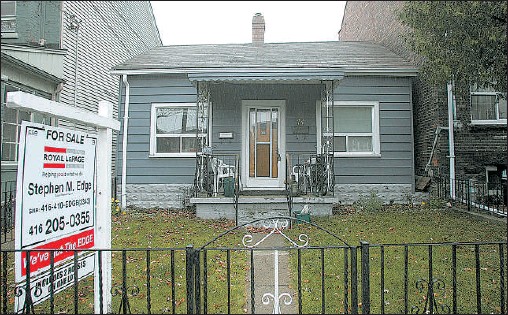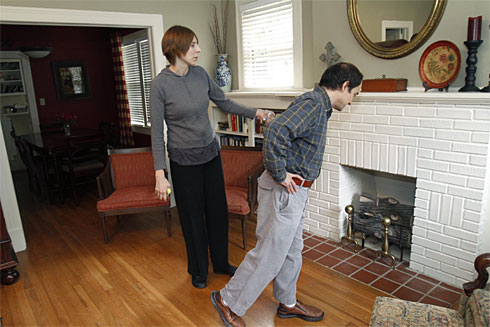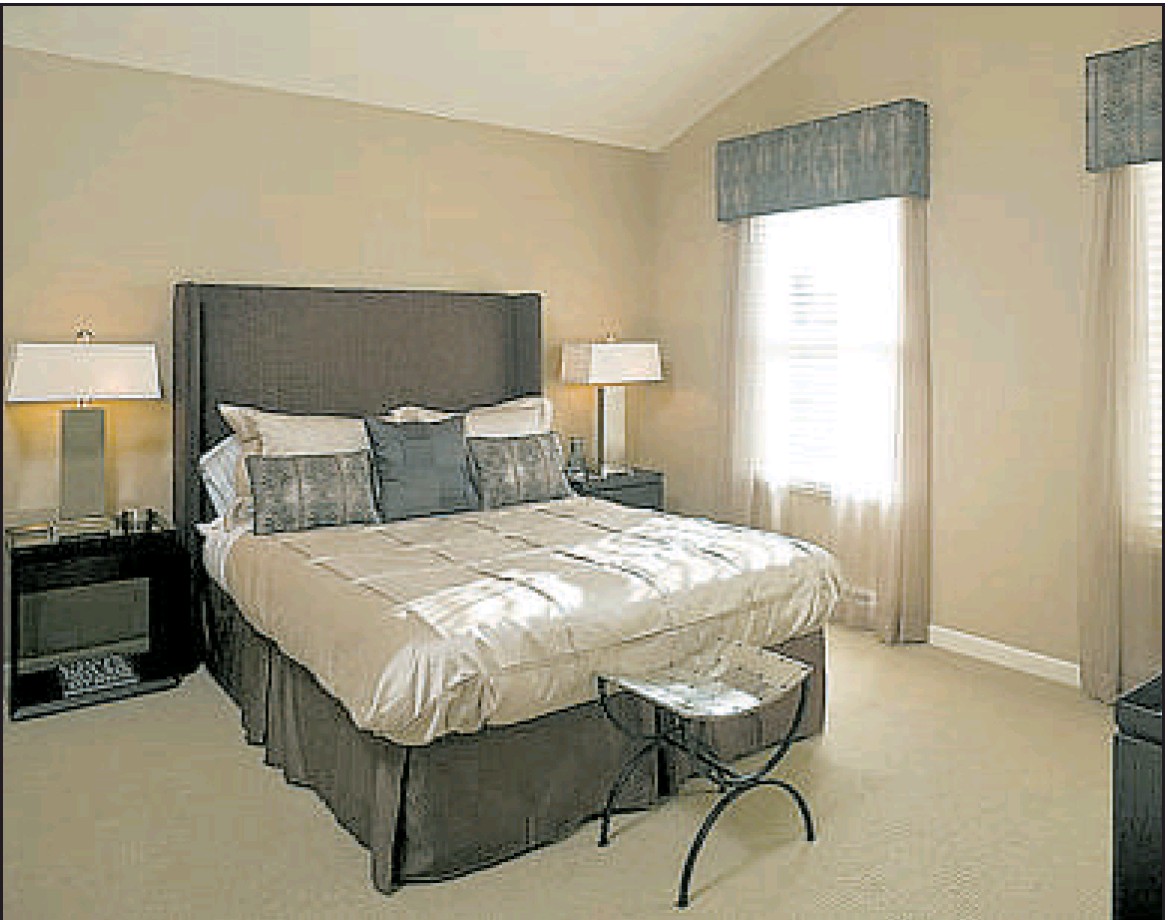Archive for November, 2009
Expect excellence, not perfection
Friday, November 27th, 2009Comfort food can also be sustainable
Thursday, November 26th, 2009Combination of delicious food and warm service makes for a perfect outing
Michelle Hopkins
Sun

At Steveston’s Tapenade Bistro (from left) Bill Laboucan, Tina Merces, Justin Cheungand Chef Alex Tung with organic beet risotto. Ian Lindsay/Vancouver Sun
When the blustery weather comes, there’s nothing I crave more than good down-home comfort food. At Steveston’s Tapenade Bistro they not only know how to do it well, they take it up a notch. The portions are generous and the menu contains some rare gems that you don’t tend to see at your local Mediterranean eatery. The service is personal and warm: If owner Vince Morlet is in the house, he personally greets each guest at the door.
So on a recent cool fall night, my dining companion and I headed over to Tapenade. I knew we were in for a treat, as I have dined here often. On this occasion, however, there was a surprise. Alex Tung, the restaurant’s longtime executive chef, had recently returned from a six-month hiatus, bringing with him some fabulous new dishes.
The chef, who recently unveiled the bistro’s new fall menu, has always been big on sustainable food practices. “My team is definitely cooking with more of a conscience and, wherever possible, we source the local, the free-range, the organic and sustainable products,” says Tung. “We’re committed to sustainable seafood and recently got on board with the Vancouver Aquarium’s Ocean Wise program.”
However laudable their ethical standards might be, the real reason to come to Tapenade is the food. While you are deciding on what to have, warm bread is brought to your table. I have to stop myself from indulging too much because I know what’s coming. I started with the beet risotto appetizer ($11) because I knew it would be simply delicious — and it was. If you like risotto, I highly recommend it. Is the secret in the aged Carnaroli rice, the red beets, the goat cheese, Rice Crispies or the sherry vinegar reserve? Whatever, I was tempted to order it for my entrée as well.
My dining companion was equally impressed with his harvest salad ($9). It is a refreshing palate cleanser, with Barnston Island organic greens as a counterpoint to the tangy, sherry maple vinaigrette sprinkled with dried cranberries, poached pear, crisped ham, candied pecans and blue cheese.
For a main course, my companion opted for the sablefish ($28). It was textbook: moist, ovenroasted and maple-glazed, served with couscous, cherry tomato, saffron and confit garlic. I went for the Prawns Provençal ($24) — sautéed tiger prawns, crispy gnocchi, buttered peas, pearl onions in a wonderfully flavourful Provençal pan sauce.
As always, the plating is a delight, done with a little flair and drama.
Tung’s food philosophy is simple: “We use as much seasonal and organic product as possible and love supporting the local farmers and local suppliers,” he says. “Most of the vegetables and herbs were supplied by Barnston Island Herbs, the mushrooms were foraged on Vancouver Island and the squash in the soup came from a local farm on No. 3 Road.”
Adds Tung: “We’re having lots of fun here, not taking ourselves too seriously. We’re not fine-dining, we’re a neighbourhood bistro with good food, great service and fantastic wine.”
When choosing a wine, the first thing you notice is that owner Morlet has really thought out the wine list. You aren’t going to find pages and pages to choose from; rather, there are more than 100 really good wines, with a strong focus on the finest from B.C., California and France. We went with B.C.’s Old Main red by Kettle Valley on the Naramata Bench. It was smooth and full-bodied, just the way I like it. Although it is said you should have white wine with fish, I still believe this red paired well with our meal.
Many restaurants talk about consistency, and that’s something that Morlet and his staff have worked on. Tung crafts fantastic meals and you will receive superior service from Morlet’s longtime staff in great surroundings. What’s not to like?
Tapenade seats 72 inside and, during the summer the heated patio can hold 70.
City rescinds bylaw limiting alcohol at dinner
Tuesday, November 24th, 2009Council hoped to target restaurants receiving many complaints by limiting alcohol to 50 per cent of bill
Richard J. Dalton Jr.
Sun
Vancouver restaurant owners will no longer face a strict limit on how much alcohol they can sell, city Coun. Heather Deal said Monday.
Council last week revised a recently enacted bylaw that limited alcohol to 50 per cent of a restaurant’s sales.
“It’s really refreshing to see a government change course, and then change course in a common-sense way,” said Ian Tostenson, president and CEO of the B.C. Restaurant and Foodservices Association.
The new bylaw requires the ratio of food to liquor sales to be “consistent with a restaurant use.”
It also says the restaurant must offer its full menu while alcohol is being served.
The previous bylaw, passed last month, limited alcohol to 50 per cent of a restaurant’s sales.
That bylaw was put in place so the city could target restaurants receiving many complaints, Deal said, adding the city never intended to go around checking receipts.
But the bylaw raised concerns that restaurants serving expensive alcohol would exceed the limit.
Tostenson said four people buying a plate of nachos and a glass of wine each would easily exceed the 50-per-cent limit.
Meanwhile, changes to liquor hours approved last month remain in effect. Restaurant owners can apply to extend their hours to serve alcohol until 1 a.m. on weekdays and 2 a.m. on weekends.
Previously, there had been a hodgepodge of liquor hours, the result of a city decision in 2003 to limit closing hours to midnight for new applicants but to allow existing licensees to retain their longer hours.
© Copyright (c) The Vancouver Sun
B.C. estate law stops the dead from stiffing ungrateful kids
Monday, November 23rd, 2009Ian Mulgrew
Sun
People might still believe it’s their estate and they’ll leave it to whom they please, but the law in B.C. says otherwise if you try to stiff your wife or kid.
There was talk of changing the unique way the province handles estate litigation as part of the latest omnibus amendments to our archaic death laws, but it went nowhere.
There was stiff opposition to bringing us into line with other provinces, the United Kingdom and the U.S. by eliminating the thrust of the Wills Variation Act.
One of the fears about changing the handling of estates was that in cultures where the son is revered as a veritable god, women would be routinely disinherited.
That can’t happen in B.C. right now.
Unlike those other jurisdictions, the century-old law we use for estate litigation comes from New Zealand rather than England.
Oddly, the debate is also occurring right now in the United Kingdom, where the issue (known as testamentary freedom) is a key concern as the country prepares for full integration with the continental community.
New Zealand was the first common law jurisdiction to seriously question and rein in the right to leave your estate to whom you pleased on the basis that the family had a right to be protected.
It passed the Testator’s Family Maintenance Act in 1900.
In the wake of the social reform movements that followed the First World War, B.C. adopted a similar statute with the same name and near identical provisions in 1920.
In England and the common-law jurisdictions such as America, that hasn’t happened to the same extent.
The liberty to dispose of your assets any way you like, as they are yours, remains a pretty fundamental bedrock idea.
In Europe, by comparison, most of a person’s estate is legally reserved for and divided equally among the surviving children.
Though some countries prohibit those who murder their parents from profiting, European nations make it illegal to disinherit children who disappoint.
Forget about leaving it all to Fido to make a point to the ungrateful progeny — the Europeans ensure they still receive their pound of your flesh.
But the rules also prevent parents from rewarding the worthy — say, the selfless daughter who forgoes her own pleasure for years to nurse an ailing mom or dad.
That’s what truly rankles the personal freedom crowd — merit gets a raw deal.
Some countries even allow what are called “clawbacks” — the ability of the heirs to retrieve assets sold by the deceased before their passing to frustrate the bureaucrats and feckless.
Last month the EU unveiled guidelines for those who have assets in more than one country — and talk about your Byzantine bureaucracy!
In Europe, the right of a child to inherit an equal share of a parent’s estate is seen as a basic human right, the English system an anachronism guaranteeing the outdated and fusty privilege of the first-born son.
The British can’t comprehend such concepts and are howling over the feared chaos of officials from Brussels trying to recover money from some U.K. charity.
The tradition of strong property rights and a free market economy drove the development of the common law, which itself is grounded in personal freedoms.
Both sides see the other system as unfair and perverse: An apparent dilemma between trampling personal freedom or accepting the worst of human caprice.
In the rest of common law Canada, which follows England, adult independent children have no claim on their parent’s estate unless they are in fact “dependent,” which usually means they cannot support themselves.
B.C. by comparison travels a kind of middle road that allows the courts to rectify wrongs. The rest of Canada should be following us, agrees Trevor Todd, the lawyer behind disinherited.com.
In the face of demands from a municipal building inspector, no one avoids the normal standards by proclaiming, “my home is my castle.”
Similarly in this day and age, no one should be allowed to treat their family unfairly by claiming that in death personal freedom gives them the right to act meanly.
© Copyright (c) The Vancouver Sun
Top grades for a smart house
Sunday, November 22nd, 2009TECHNOLOGY: Program lights, heating, air to reduce energy use
MIKE HOLMES
Province

A smart meter allows homeowners to save money on their electricity bill by avoiding usage peak rate.
Is your house smarter than you? In some ways, it probably already is, and building technology is developing all the time to improve on that intelligence. Your house is a system, and all the parts work together. In fact, many or most of its parts already work without your even knowing how they do it.
Like your HVAC system, there’s a thermostat that reads the temperature in the room and sends a message to the furnace or the AC unit to heat or cool the house, depending on your requirements. Programmable thermostats can be set to come on so your home is warm when you arrive home from work.
You put lights on timers when you go on vacation, you might have a coffee maker that has a fresh pot ready when your alarm goes off in the morning.
What if your house was so smart that you could set all that up — and more — remotely, through an Internet connection or with your cellphone? A smart house allows you to control your home’s heating, ventilation and air conditioning remotely. It allows you to turn lights on and off, or dim them, and manage your energy use, saving money and reducing energy consumption.
What if your house had a smart meter that showed you the actual time-of-day price of the electricity you were currently using, so you can make an informed choice about your energy use?
Energy costs more during peak times, but consumers aren’t aware of how much they use during the expensive times since their usage is typically calculated on a monthly basis. A smart meter shows actual current usage — real time information — about the price of electricity so you can “talk to” and program your house based on what you know.
A smart meter will tell you how much energy you are using, in what rooms and on what appliances you are using it, how much it’s costing you, and how much you could save if you made different choices.
It’s long overdue that we have a meter that helps consumers manage their energy consumption. But for a house to be really smart, I think we need to do more. We need to make more intelligent choices about where we are getting that energy in the first place. A smart meter is (so far) all about tracking energy consumption from the grid.
The technology is available — it has become more and more affordable, with a shorter payback time. There is geothermal, wind and solar power with battery back up. There are even electric cars. Get off the grid as much as possible.
What if you incorporated solar or wind technology to help offset what you use from the grid? What if your house was smart enough to know when electricity was costing you more, and could choose instead to use backup power stored in batteries? What if it could take advantage of the higher peak prices of power to sell it back to the grid — in effect making you money? Now that’s a smart house. Catch Mike in his brand new series, Holmes Inspection airing Thursdays at 8 p.m. ET/PT on HGTV. For more information visit www.hgtv.ca








